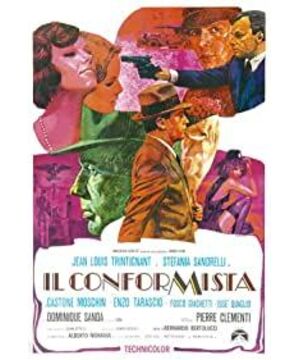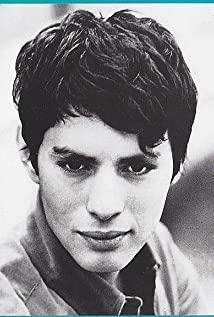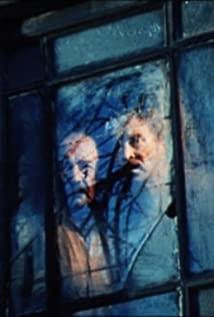The film's original title, "conformista," was derived from English, referring to converts to the Anglican Church; later, in French and Italian, the word gradually evolved to refer to the self-proclaimed conformist orthodoxy .
The film "Followers" was adapted by director Bertolucci based on the novel of the same name by the famous Italian writer Moravia. The emergence of Moravia's novel with a strong political color is inseparable from some political events in the world after the mid-1960s. (Many events occurred at the time, including the Hungarian events, the Czechoslovak events, and the "Cultural Revolution" in China, and the subsequent extreme "left" ideological trends in Italy and France.) This made many people, especially intellectuals, have Values have changed. In the early 1970s, a number of political films that exposed social reality and revealed the social psychology of characters appeared in Italian films. What Bertolucci represents is a bourgeois intellectual who is caught in an ideological crisis; he is actually a political speculator, but he justifies himself by "complying with the development trend of the times" from time to time.
In the film, although Bertolucci sets the background of the story in the period of Italian fascist rule in the 1930s, the content of the film itself contains a strong insinuation of the current reality. The 1930s was the "heyday" period after the consolidation of the fascist rule in Italy. The fascist regime achieved some achievements in domestic economic development through high-handed policies. The elements mistakenly believe that fascist rule has become the mainstream of the times, while ignoring the actual existence of the forces against fascism and their just struggle. Many people decide to follow the Fascist "trend" for their own purposes, and even prepare to "sell their souls to the devil". Marcello is such an intellectual: in order to get rid of his family and spiritual difficulties, he sold his soul to the fascists; he enforced the fascist orders as laws; he no longer cared about morality, not only betrayed his teachers, but also Possesses Anna, the teacher's wife; he can be indifferent to the fact that his wife has been abused, because in his mind neither physical nor political chastity matters; he can indifferently cooperate with the fascists in the assassination of his teacher , can also watch him die in a pool of blood; however, once the fascist collapse, he is able to seize the moment, transform himself into a "brave" anti-fascist, and even dare to expose the fascists publicly, which is more than he dared only in the fascist period The whistleblower went "a step further".
On the surface, Bertolucci seems to be trying to analyze Marcello's character and his politically speculative nature from a class point of view. , in order to explain that Marcello's political performance has its class imprint. However, once you look deeply, you will find that Bertolucci's foundation is still the theory of human nature; he always regards Marcello's actions as the natural manifestation of human nature: Marcello first turned to fascism for his own life difficulties, and later It was the beautiful wife who seduced the professor for his physical desires, and finally when the fascists fell, he transformed himself into a brave anti-fascist for survival. Bertolucci analyzes Marcello's actions from the perspective of "biological man" and "survival instinct" in the whole film, showing him as a "man" driven by instinct, This naturally reduces the political significance of the film.
In the film, Bertolucci presents Marcello with contempt and sarcasm, especially in the last scene: when Marcello screams in public on the day of the fall of fascism, "Mondanelli is a fascist" Molecule!", his behavior was ridiculed, because Montanari was the one who brought Marcello into the fascist organization. This move by Marcello may also be seen as a madman's move, as the film has previously suggested that Marcello has a genetic gene for neurosis; his father is a psychopath and his mother is a drug addict.
This also just shows that Bertolucci's method here has something in common with his other films, that is, the use of Freudian psychoanalysis. Freud believed that life means "the instinctive aim of restoring things to an earlier state". This goal is what Freud called "regressive compulsion", that is, life is just a kind of cycle, the beginning and the end are connected, indistinguishable, and mixed. According to this, Marcello's initial refuge with fascism and his final shouting against fascism were originally the same thing. His ending was the inevitable result of his beginning. There was no beginning and end in between, he just completed a cycle. Another example is that after the professor was killed by a fascist agent, Marcello had the idea of saving Anna and saving her from death. According to Freud's theory, this flash of thought cannot be understood as the "return of humanity" in Marcello or The "compassion" shared by people can only be regarded as a subconscious expression of Marcello, because he had an unusual sexual relationship with Anna. It was this physical relationship that made him want to save Anna so that he could continue to satisfy his desires. This was originally a subconscious revelation, so when the spy pointed out that they could not leave witnesses, it was inevitable that he immediately gave up the idea of saving people.
Italian film critics have given this film a lot of attention. For example, the famous film critic Londolini once pointed out, "The Drifter is not only a psychoanalytic film, it is also the story of a generation who were enthusiastic in 1968, but disheartened later, and have been criticizing ever since. In reality, the right way out will never be found.” Londolini watched this film in combination with the general political development trend in Italy, and his words seem to give people some necessary reminders and inspirations.
View more about The Conformist reviews











